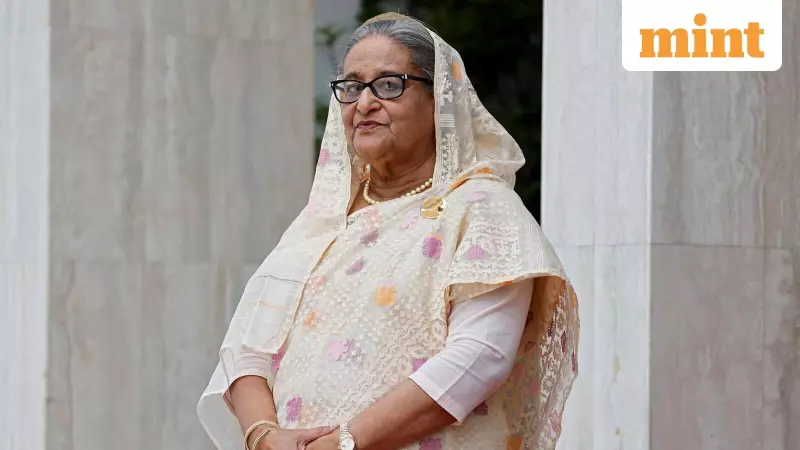
In a landmark ruling that has sent shockwaves across South Asia, a Bangladesh court on Monday delivered a death sentence to former Prime Minister Sheikh Hasina for crimes against humanity committed during the country's student protests in 2024.
Historic Verdict by International Crimes Tribunal
The International Crimes Tribunal (ICT) of Bangladesh found the ousted Prime Minister guilty on all five charges filed by prosecutors, including failure to prevent murder during the violent crackdown on student-led demonstrations. Judge Golam Mortuza Mozumder declared that all elements constituting crimes against humanity have been fulfilled in this case.
The highly anticipated judgment was broadcast live on television nationwide, drawing intense public attention. The court also convicted former home minister Asaduzzaman Khan Kamal and former Inspector General of Police Chowdhury Abdullah Al-Mamun, finding them equally guilty of orchestrating and enabling atrocities during the July-August student protests last year.
Political Context and International Ramifications
The dramatic verdict comes just ahead of the first elections in Bangladesh since Sheikh Hasina's overthrow in August 2024. The 78-year-old political leader defied court orders to return from India to attend her trial, raising diplomatic tensions between the neighboring nations.
Bangladesh's foreign ministry summoned India's envoy to Dhaka earlier this month, demanding that New Delhi prevent the "notorious fugitive" Hasina from speaking to journalists and "granting her a platform to spew hatred." Her exact whereabouts in India remain unknown, adding another layer of complexity to this international diplomatic situation.
Heightened Security and National Implications
Security forces took extraordinary measures surrounding the court during the verdict announcement. Armored vehicles manned strategic checkpoints while thousands of police officers were deployed across the capital to maintain order and prevent potential unrest following the controversial decision.
The ruling represents one of the most significant political developments in Bangladesh's recent history, potentially reshaping the country's political landscape as it prepares for upcoming polls. The verdict concludes a highly charged legal process that has captivated the nation and drawn international attention to Bangladesh's judicial system and political stability.






